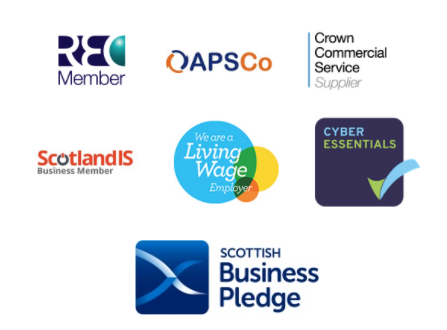

I think it’s fair to say that Be-IT doesn’t get many applications to join us from candidates in Norway. If we did, I suspect we might be surprised when they demand to know exactly what they will be paid – and expect to know what salary everyone else in the company is on. We would say (and you might say quite rightly, or perhaps not, especially if you are a woman, of which more below) that it’s no-one else’s business but your own.
However, in Norway (and Sweden) being able to see what everyone else gets paid and indeed how much tax they pay, has been a public right for many years. Although the laws around this have tightened up from the days when anyone could just go anonymously online and see anyone else’s salary, it still remains the case that you can find out what your boss, your neighbour and your local councillor is paid. The only stipulation now is that the person whose salary is being viewed can also see who has requested to see it.
Before you dismiss this as a Scandinavian aberration, consider this: in the USA, there is a trend towards similar (albeit not quite) such transparency. Earlier this year, the authorities in New York introduced new rules for that state that require almost all companies to provide salary ranges for job postings.
Now, it’s also true to say that these laws are fairly easily got around, with companies setting huge salary ranges, spanning tens of thousands of pounds, but the overall direction of travel is clear. In the UK, we already have salary ranges publicly available for the vast majority of public sector appointments, albeit with small print that says words to the effect of “other than in exceptional circumstances, your starting salary will be at the lowest point on the salary scale.”
In the States, major corporations are starting to roll out similar transparency requirements across their US operations. For example, Microsoft is reported as having said that it hoped a countrywide change would “ensure a consistent experience for job seekers interested in finding their place on our team.”
Reed.co.uk, one of the UK’s largest job-boards, is also supportive of this idea, even if the trend in our country is apparently in the opposite direction. Their figures suggest that the percentage of jobs which did NOT advertise salary on their website increased between March and October this year. This is given more weight by findings from Indeed.com, where just under 50% of the 14 million listings on its website over the three months to the end of June this year included salary data. Other reports from major job-boards and aggregators come up with the same results.
Given that Be-IT’s last few annual salary and career planning surveys show that pay is the single most important thing candidates want in a new job, it does seem likely that more transparency would be beneficial. According to Reed, a UK job advert that displays a salary receives around 37% more applications than one that does not.
Part of the issue here is that a large percentage of adverts on job-boards come from recruitment consultancies like Be-IT. Primarily for reasons of client confidentiality, we (and our competitors) sometimes do not advertise exact salaries. Usually, this is because our clients want to make a final offer dependent on the candidate’s experience and, with such a tight IT jobs market, the ability to go an extra mile (or two) on salary can often secure a candidate who would otherwise not be persuaded to move. Other clients don’t want salaries advertised because they’re worried about the impact that such transparency might have on existing employees.
Yet here’s the rub. Norway has one of the lowest gender pay gaps in the world. The World Economic Forum ranks Norway as third out of 144 countries worldwide for wage equality for similar work.
That said, there are also downsides to such transparency. A US study of Norwegian data suggests that making people aware of just how richer some others were than them led to an increase in unhappiness. For those able to get online (the majority), after 2001, when the law allowed people to access other’s tax records, the link between happiness and income grew by 29% and the link between life satisfaction and income rose by 21%. Poorer people became more likely to feel despondent and the rich seemed to feel a little bit prouder of themselves.
Will this come to the UK? Simon Wingate, the MD of Reed, says it is “probably too early to say whether the UK will follow the same legislative route as the US,” but goes on to add, “They say when America sneezes, the world catches a cold.” Moreover, he believes there is a “renewed interest in the topic of salary transparency over the past year due to the combined factors of skills shortages and the cost-of-living crisis.”
Paul Lewis, Chief Customer Officer at aggregator Adzuna, is even more firmly of the opinion that change is coming, saying “With the cost-of-living spiralling, being paid what you’re worth has become even more top of mind for workers. We’re seeing increasing calls for salary transparency from industry players, jobseekers and employees alike, and even a pilot trial from the UK government. But the cold hard stats show that the UK has been moving in the opposite direction, with the proportion of job ads disclosing vital salary information at a six-year low. This is worrying. There’s plenty of evidence to suggest a lack of pay transparency can worsen pay gaps as well as being stressful and wasting time for jobseekers. We believe it’s time for change and that’s why we’re campaigning for the government to make it a legal requirement for every job posting to disclose a salary.”
This is backed up by a more recent survey, by the Fawcett Society charity, which suggests that female voters want the legal “right to know” what their male colleagues are paid. Moreover, the charity found that 71% of female voters in Red Wall constituencies reported that they would be more likely to vote for a party that introduced a legally enforceable policy allowing women to find out the pay of men in their workplace, enabling them to challenge pay discrepancies. Furthermore, a majority of women would like to see questions about salary history in recruitment processes scrapped, with 62% saying they would support a party that said it would introduce legislation to this effect.
With pay very much top of the agenda for IT professionals seeking a career move – and the increased government and societal pressure to close the gender pay gap, I suspect that the demand for increased transparency will increase in the years ahead. Watch, as they say, this space…
Michael Phair, Operations Director, Be-IT
Whether you’re looking to hire for your team or you’re looking for higher rewards in your career, knowledge is power. And we’re here to give it to you. The results of our annual tech sector survey are out now – with our 2025 Salary Benchmark and accompanying Career Trends Report. To get your hands on both, we just need a few details...

